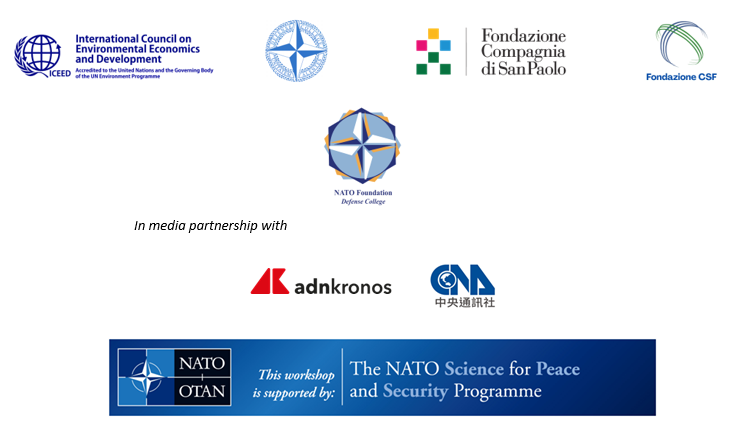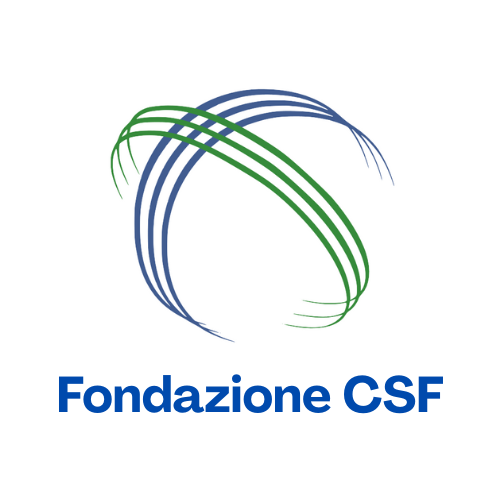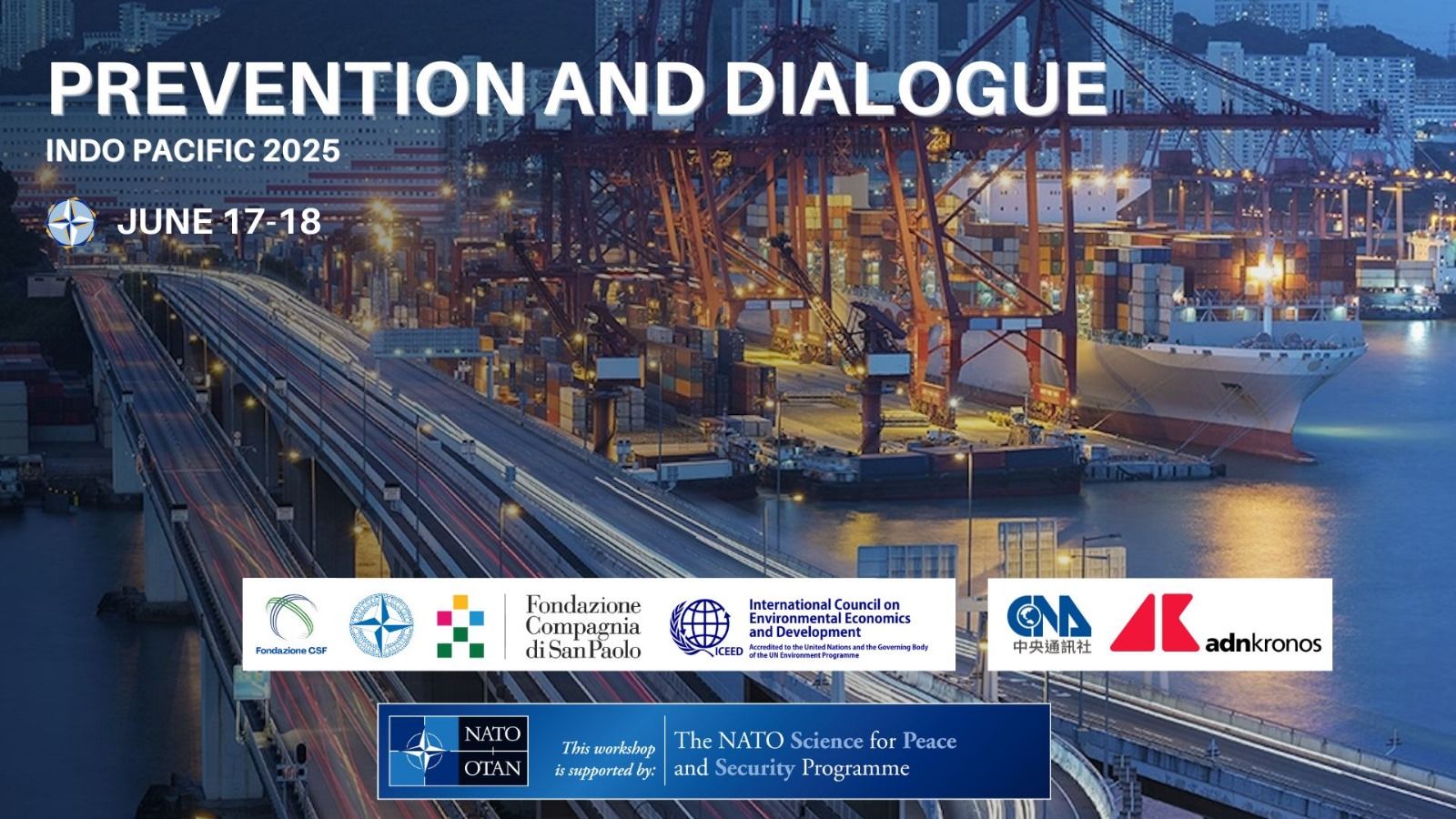17 June 2025
14,30 – 15,00 CET Participants Arrival and Registration
15,00 – 15,15 Welcome Remarks
- Alessandro Minuto-Rizzo, President, NATO Defense College Foundation, Rome*
- Max Nielsen, Commandant, NATO Defense College, Rome
- Ken Kitatani, Chief of Executive Board and Committee, International Council on*
15,15 – 15,25 Opening Remarks
- Eyup Kuntay Turmus, Advisor and Programme Manager, NATO HQ, Brussels
15,25 – 16,35
First Panel : The Indo-Pacific and its partnerships
The Indo-Pacific is lacking a shared security vision and architecture, while different partnerships are characterising the region. How can existing partnerships be developed in order to ensure security? At the Washington Summit in July 2024 the four regional partners (Australia, New Zealand, Japan and South Korea) were invited again. What role for the new Indo-Pacific partners? How could new and old ones work together with other groupings? By which means confidence building measures can be set up and security cooperation fostered?
Chair: Giulia Tercovich, Deputy Director, Centre for Security, Diplomacy and Strategy (CSDS), Brussels *
● Walter Di Martino, Head, North Eastern Asia Office, Directorate General for Global Affairs, Ministry of Foreign Affairs and International Cooperation, Rome *
● Kaush Arha, President of the Free & Open Indo-Pacific Forum, Institute for Tech Diplomacy, Atlantic Council, Washington *
● Amaia Sánchez-Cacicedo, Non-Resident Senior Fellow, Asia Program, Institut Montaigne, Madrid *
● Christina Lin, Senior Non-Resident Associate Fellow, NATO Defense College, Rome *
Q&A Session
16,25 – 17,05 Special Intervention
Rajendra Abhyankar, chairman, Kunzru Centre of Defence studies and Research, Pune and former Professor of Practice at Indiana University and Visiting Professor, Purdue University*
16,35 – 17,05 Coffee Break
17,05 – 18,00
Second Panel : The hybrid dimension
The Indo-Pacific region has developed an intense hybrid warfare activity since the fall of the Soviet Union (Iraq, Afghanistan, war on terror, Korea and recently in Pacific hotspots), dating back to very long-standing traditions. What are the specifics of the region? Which NATO experiences can be applied and which innovations are required? Is it possible to conceive regional centres to combat disinformation and hybrid threats across the board?
Chair: Alexandra Sakaki, Deputy Head of Asia Research Division, German Institute for International and Security Affairs (SWP), Berlin*
- Mihoko Matsubara, Chief Cybersecurity Strategist, NTT Corporation, Tokyo*
- Gabriele Abbondanza, International relations and international security academic, University of Sydney (USYD), Sydney*
- Joanna Siekiera, Non - Resident Fellow, Indo Pacific Security Initiative, Atlantic Council, Warsaw*
Q&A Session
18,00 – 18,15 Closing Remarks
Deborah Bergamini, Member of the Chamber of Deputies, Foreign Committee Affairs, Rome *
18 June 2025
10,30 – 11,10 CET Participants Arrival, Welcome Coffee and Registration
11,10 – 11,20 Opening remarks
Elena Grech, Deputy Head, European Commission Representation in Italy, Rome *
11,20 – 12,20
Third panel: Emerging and mutating challenges
The mediatised regional tensions are the visible part of an overall security environment that includes persistent challenges: subversion, organised crime, climate change and illegal trafficking. They are all identified either sooner or later by NATO’s summit declarations or by different strategic concepts. What are the main impacts of these challenges on the area? How can allies and partners better combine their efforts? Can these challenges be part of a wider security dialogue and cooperative security?
Chair: Gorana Grgić, Senior Researcher, ETH Zürich’s Center for Security Studies (CSS), Zurich *
Ivo Schutte, Head of Division, Indo Pacific, European External Action Service, Brussels *
- Christina Schori Liang, Head of Counterterrorism and Preventing Violent Extremism (PVE), Geneva Centre for Security Policy (GCSP), Geneva *
- Pietro De Matteis, Programme Officer for the Indo-Pacific, NATO HQ, Brussels *
Q&A Session
12,20– 12,40 Closing Remarks
Gun Hwa Kim, Minister, Embassy of Republic of Korea to Italy, Rome *
Alessandro Azzoni, Deputy Director General for Political Affairs and Principal Director for Security, Italian Ministry of Foreign Affairs and International Cooperation, Rome
Organised by the NATO Defense College Foundation
in cooperation with the Fondazione CSF,
Fondazione Compagnia di San Paolo, the Center for Security Studies (ETH Zurich), International Council on Environmental Economics and Development (ICEED) and the NATO Defense College


 It
It  En
En 



